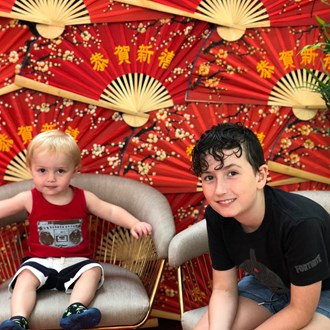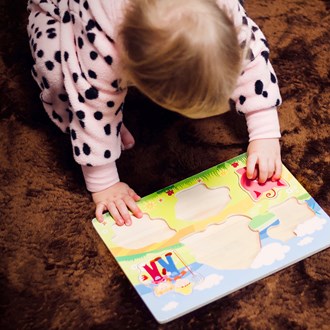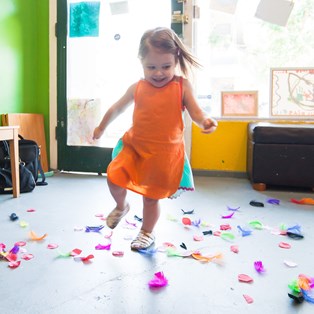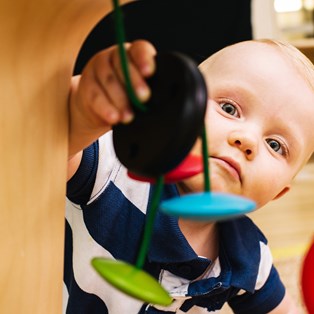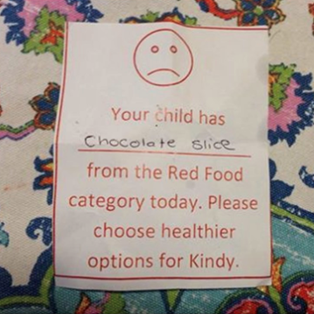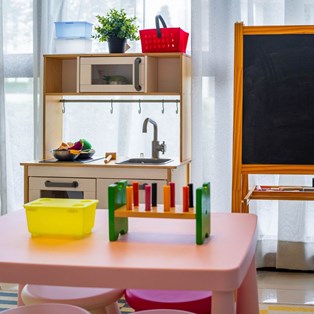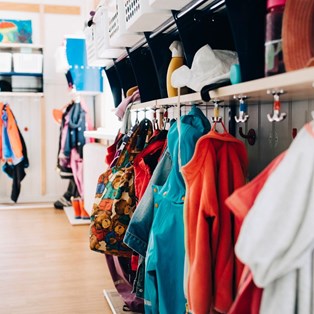5 essential questions to help you choose the right preschool for your child

Because early education is so important for your little one’s development.
Whether your child is already in some form of childcare or is a stay-at-home toddler, it’s time to start thinking about enrolling them in preschool before they reach three to four years of age.
Global studies have found that there are huge benefits to exposing children to two years of education before they start at primary school. With 90 per cent of a child’s brain development occurring in their first five years of life, preschool helps to maximise growth during this critical window.
But will getting into the “right” preschool really impact the trajectory of your child’s formative years? It can help!
If your child has a positive experience in early childhood education, they are likely to have a better chance of keeping up with their peers, achieving in school and developing a love of learning right throughout their teenage and adult years.
So to help get your little one off to a good start, here are five questions to ask your prospective early childhood learning centres.

A positive preschool experience can help encourage a love for learning in later years.
1. What type of preschool are you?
Firstly, you may need to decide what kind of preschool you would like to send your child to. There are different types of preschools and kindergartens in different states.
Some preschools are run by the local or state government, others by private companies, independent schools or volunteer parents. However, most stand-alone preschools are operated as community-based, not for profits services.
Fully integrated preschool programs are also provided within in long day care or early learning centres.
Chris Legg, CEO at KU says one key difference between the standalone preschool program versus the integrated preschool program is that one is eligible for the Child Care Subsidy and the other is not.
“KU’s standalone preschools are centres that only enrol children of preschool age. Preschool operates four terms with preschool holidays in between, and a slightly shorter day. For many children this structure can help with the transition to school. Children typically bring their own lunch. These preschools are not generally eligible for the Child Care Subsidy,” explains Chris.
“KU also offers very high quality preschool programs within each of our long day care centres,” says Chris. “The preschool program is designed specifically and exclusively for the preschool age children, however provides families with the convenience of longer hours and meals included. Our integrated preschool programs are eligible for Child Care Subsidy, and families who meet the criteria may attract a fee subsidy.”
“Both types of preschool program should be delivered by a university qualified early childhood teacher, regardless of the setting.”
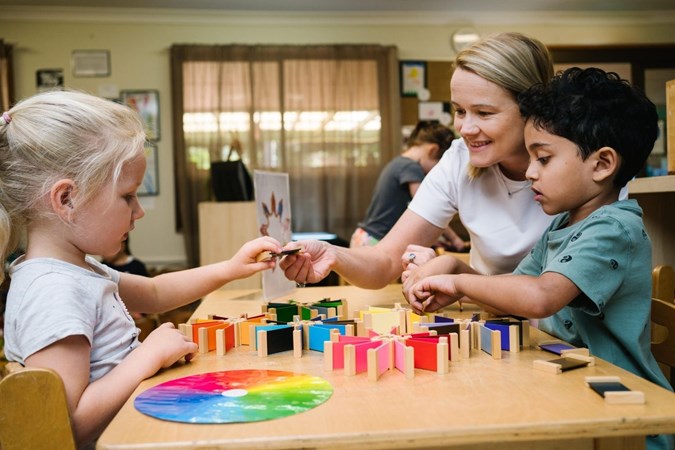
There are different preschools and kindergartens in different states.
2. Does the preschool follow a play-based educational program?
The Early Years Learning Framework defines play-based learning as ‘a context for learning through which children organise and make sense of their social worlds, as they engage actively with people, objects and representations’.
Preschools which are play-based have a structure to their day. Children often thrive on routine and a play-based preschool can provide them with exactly this.
Chris says KU’s preschool programs are specialist play-based educational programs, designed exclusively for children in the years before school.
Play-based activities for children can include group games where they can take ownership and be leaders in their play. Children are also encouraged to engage in small group experiences that build on their capabilities and confidence, as well as with their educators in caring for their learning environment through sustainability practices and caring for each other.
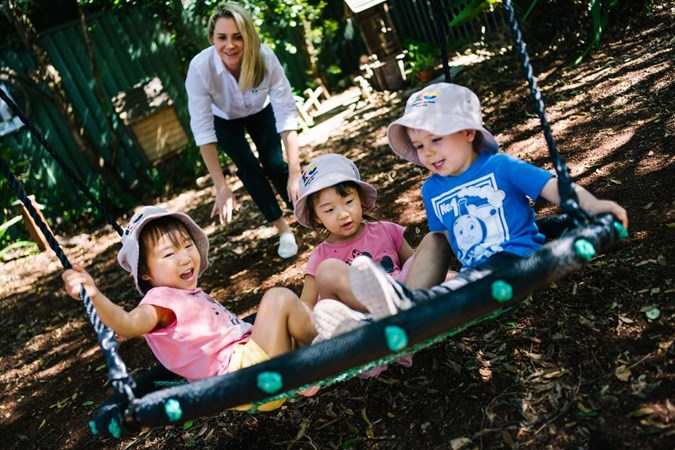
Small group experiences can build on child's capabilities and confidence.
3. What are the educators like?
Ask about the qualifications of the staff. All programs should be led by a university qualified early childhood teacher, and supported by other qualified educators.
If you're able to visit the preschool you’re interested in, take time to observe the educators and see how they interact with the children. Hopefully, you’ll see educators who are insightful, kind-hearted, enthusiastic and passionate about teaching. Most importantly, you should observe strong connections between the educators and children.
“We nurture the development of identity, confidence and capability which form the foundations of a lifelong love of learning. We ensure the voices of children contribute to the work that we do and the decisions we make,” says Chris.
4. Does the preschool meet or exceed the National Quality Standard rating?
Not all childcare services are created equal. In fact, almost one in five centre-based childcare services do not meet the National Quality Standards (NQS), an Australian benchmark for early childhood education and care services.
The NQS rating helps families to assess the quality of the childcare centre or preschool, so be sure to enquire whether the preschool you’re considering meets the standard.
Chris says: “Proudly, 100% of KU centres meet or exceed the National Quality Standards. We even have centres that have been awarded a special ‘Excellent’ rating, which is only granted to recognise truly exemplary quality, in very exceptional circumstances”.
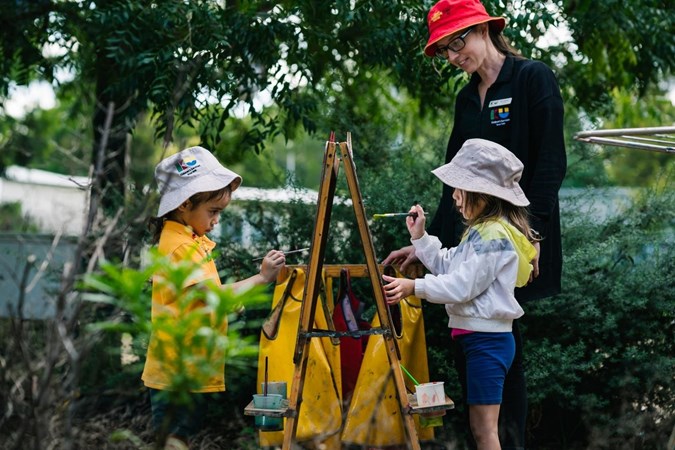
All preschool programs should be led by a university qualified early childhood teacher, and supported by other qualified educators.
5. What programs do you offer children with additional needs?
If you have a child with additional needs, you’ll want a preschool that offers programs and support but also a place where the educators have an understanding of your child’s specific needs too.
KU’s Education Support Team supports KU centres with the inclusion of children with additional needs. This may include children with diagnosed disabilities, challenging behaviour or social and emotional difficulties, as well as supporting families and educators when they have concerns about a child’s development.
The team of Education Support Managers have qualifications in Early Childhood Teaching as well as postgraduate qualifications in Special Education or related fields.
The NSW Government has an Early Childhood Education Disability and Inclusion Program is to provide funding and support to enable children with disability and additional needs in community preschools to participate in a quality early childhood education program on the same basis as all children.
Check your individual state government for their additional needs inclusion programs.
Brought to you by KU.

When I'm not whipping up articles with handy gems of parenting advice, tips and tricks, I'm attempting to put into practise what I write about as I wrangle my toddler and five-year-old.


